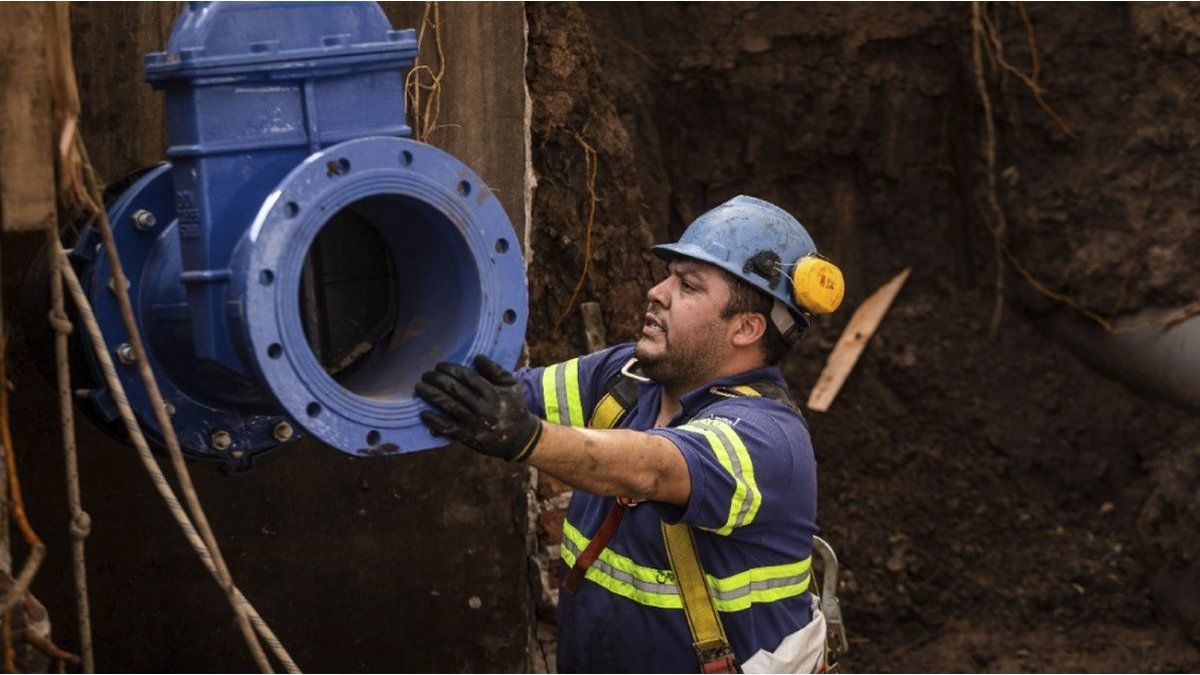After the interruption arranged as soon as it took office, the Government now began a process of transfer of some public works from the Nation to the provinces, with the aim of finishing them. And in that sense, the governors of the center of the country agreed that the infrastructure It is essential for the development of the economy.
“For development it is necessary infrastructure and public work. Infrastructure is a central part of development, it is what allows us to be productive in a place and gain competitiveness,” explained the governor of Córdoba, Martin Llaryora, while remembering that without infrastructure you cannot exploit the resources you have. He did it within the framework of the annual convention of the Argentine Chamber of Construction (CAMARCO)which took place on the premises of The Rural.
The governors of Entre Ríos also participated in the panel, “Infrastructure and Employment, the role of the provinces”, Rogelio Frigerio; from Santa Fe, Maximiliano Pullaro; and from Mendoza, Alfredo Cornejo.
“The fall in GDP is 5.1% for all Argentines. In this fall in GDP, you are the most affected, you fell 19.7%. “They deserve to be vindicated as businessmen who are moving forward,” said the Cordoba president.
governors.jpeg
The provincial leaders in La Rural: concern for public works.
Transfer of works to the provinces
The national government is transferring public works to the provinces, so that they can conclude them. This Tuesday, Pullaro and the governors of San Juan, Marcelo Orrego, and of San Luis Claudio Poggi, They signed the transfer of some of them. Even before the panel ended, the governor of Santa Fe withdrew, due to the commitment he had with the Nation.
“We in Córdoba did not stop public works, we have continued with the public works plan, not at the pace we wanted, but we have continued. We have signed an agreement, in which Some of the governors are giving a hand to the Nation.. It is the first time that the governors go to the Nation and say: ‘You lack money to finish the work, pass it on to us who are going to finish it,’” explained Llaryora.
On this particular point, the president of CAMARCO, Gustavo Weisshighlighted the transfer of works, but asked “if the provinces have funding” to face them.
The worst year of construction
In turn, the governor of Entre Ríos, Rogelio Frigerio, highlighted that “this is the most difficult year for the construction sector,” which is reflected in the drop in jobs. “Almost half of the growth in unemployment, from 5.5% to 7.7%, corresponds to the drop in construction jobs,” he said.
Weiss I had already pointed out something similar previously. He even compared the current fall in the sector with that of 2001, but recalled that the activity was not as prominent, which makes the current fall more complex, since businessmen came with credits and purchases of materials for the sector.
In turn, Mendoza native Cornejo stressed that the State “cannot be outside of public works”, since it is necessary to generate infrastructure “that adds value to our economies.” And he highlighted a fund that was set up in his province with $1.023 million and that “prioritizes energy, water, road and train works.”
Pullaro pointed out that, although they were able to resume works with “their own resources and with international organizations”, there are “road works that only the State can do.” As an example he mentioned the development of inter port complex, which should be carried out to improve access to the ports of the city of Rosario. “We are going to invest 50 million dollars to improve the roads that lead to the port. During this time we resumed many works that had been deactivated by the previous management.”
For the recomposition of the sectorthe Entre Ríos leader of Together for Change pointed out the need to create new financing mechanismsthat are effective in boosting public works, such as public-private ones.
“Private parties can finance works and we see it in other parts of the world, but they are the least. Hopefully from now on we can have more financing from the private sector. But, if we cannot talk about public-private works, we have to go look for international financing,” said Frigerio, who asked to demystify the taking of debt to finance works.
Source: Ambito




